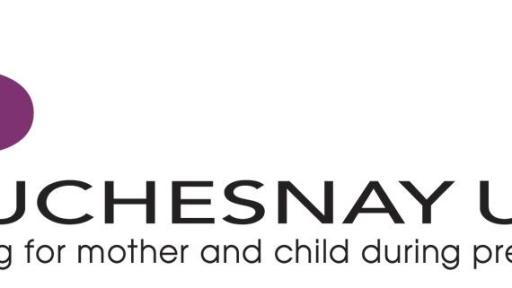Duchesnay USA Publishes Corrective Messaging through Kim Kardashian’s Social Media Accounts in Response to FDA’s Request
Rosemont, PA – August 31, 2015 – Duchesnay USA announced that it has taken corrective action to address the U.S. Food and Drug Administration’s Office of Prescription Drug Promotion (OPDP) Warning Letter regarding omission of risk information and important limitations of use for Diclegis® (doxylamine succinate and pyridoxine hydrochloride) delayed-release tablets in Kim Kardashian West’s product testimonial through social media.
“In the original post, which we developed with Kim, we provided her with a link to risk information and limitations of use for Diclegis, but this post did not meet FDA requirements for communicating important product information,” said Dean Hopkins, General Manager, Duchesnay USA. “We remain firmly committed to fulfilling our long-standing mission to develop pharmacological solutions to reduce the symptoms of nausea and vomiting during pregnancy (NVP) and are dedicated to safeguarding the health and well-being of expectant mothers and their unborn babies. We appreciate the FDA’s guidance, and Kim’s cooperation in issuing corrective messaging on Duchesnay USA’s behalf.”
The Company, in collaboration with Kim, published the following Instagram message that includes the limitations of use and important safety information for Diclegis:
#CorrectiveAd I guess you saw the attention my last #morningsickness post received.
The FDA has told Duchesnay, Inc., that my last post about Diclegis (doxylamine succinate and pyridoxine HCl) was incomplete because it did not include any risk information or important limitations of use for Diclegis. A link to this information accompanied the post, but this didn’t meet FDA requirements. So, I’m re-posting and sharing this important information about Diclegis. For US Residents Only.
Diclegis is a prescription medicine used to treat nausea and vomiting of pregnancy in women who have not improved with change in diet or other non-medicine treatments.
Limitation of Use: Diclegis has not been studied in women with hyperemesis gravidarum.
Important Safety Information
Do not take Diclegis if you are allergic to doxylamine succinate, other ethanolamine derivative antihistamines, pyridoxine hydrochloride or any of the ingredients in Diclegis. You should also not take Diclegis in combination with medicines called monoamine oxidase inhibitors (MAOIs), as these medicines can intensify and prolong the adverse CNS effects of Diclegis.
The most common side effect of Diclegis is drowsiness. Do not drive, operate heavy machinery, or other activities that need your full attention unless your healthcare provider says that you may do so. Do not drink alcohol, or take other central nervous system depressants such as cough and cold medicines, certain pain medicines, and medicines that help you sleep while you take Diclegis. Severe drowsiness can happen or become worse causing falls or accidents.
Tell your healthcare provider about all of your medical conditions, including if you are breastfeeding or plan to breastfeed. Diclegis can pass into your breast milk and may harm your baby. You should not breastfeed while using Diclegis.
Additional safety information can be found at www.DiclegisImportantSafetyinfo.com or www.Diclegis.com.
Duchesnay USA encourages you to report negative side effects of prescription drugs to the FDA. Visit www.fda.gov/medwatch or call 1-800-FDA-1088.
Indication
Diclegis is a prescription medicine used to treat nausea and vomiting of pregnancy in women who have not improved with change in diet or other non-medicine treatments.
Limitations of Use
Diclegis has not been studied in women with hyperemesis gravidarum.
Important Safety Information
Do not take Diclegis if you are allergic to doxylamine succinate, other ethanolamine derivative antihistamines, pyridoxine hydrochloride or any of the ingredients in Diclegis. You should also not take Diclegis in combination with medicines called monoamine oxidase inhibitors (MAOIs), as these medicines can intensify and prolong the adverse central nervous system (CNS) effects of Diclegis.
The most common side effect of Diclegis is drowsiness. Do not drive, operate heavy machinery, or other activities that need your full attention unless your healthcare provider says that you may do so.
Do not drink alcohol, or take other CNS depressants such as cough and cold medicines, certain pain medicines, and medicines that help you sleep while you take Diclegis. Severe drowsiness can happen or become worse causing falls or accidents.
Diclegis should be used with caution in women who have certain medical conditions, such as asthma, or eye, stomach or bladder problems. Tell your healthcare provider about all of your medical conditions so he/she can assess if Diclegis is right for you.
It is not known if Diclegis is safe and effective in children under 18 years of age. Keep Diclegis and all medicines out of the reach of children.
Diclegis is a delayed-release formulation, so signs of overdose may not appear right away. If you take too much Diclegis (overdose), you may have the following symptoms: restlessness, dry mouth, the pupils of your eyes become larger (dilated), sleepiness, dizziness, confusion, fast heart rate, seizures, muscle pain or weakness, and sudden and severe kidney problems. If you have these symptoms and they are severe, they may lead to death. Stop taking Diclegis, call your healthcare provider or go to the nearest hospital emergency room right away. For more information about overdose treatment, call your poison control center at 1-800-222-1222.
Tell your healthcare provider about all of your medical conditions, including if you are breastfeeding or plan to breastfeed. Diclegis can pass into your breast milk and may harm your baby. You should not breastfeed while using Diclegis.
Duchesnay USA encourages you to report negative side effects of prescription drugs to the FDA. Visit www.fda.gov/medwatch or call 1-800-FDA-1088.
For additional important safety information, please see full Prescribing Information and Patient Information at Diclegis.com. This information is not intended to replace discussions with your healthcare provider.
About Nausea and Vomiting of Pregnancy (NVP)
Nausea and vomiting of pregnancy (NVP), or morning sickness, affects 70 to 85 percent of pregnant women.1, 2, 3, 4, NVP can present differently for each woman, the symptoms include: nausea, gagging, retching, dry heaving, vomiting, and odor and/or food aversion.5 For most pregnant women, symptoms generally cease at approximately 16 to 20 weeks.4 However, some women can experience symptoms throughout their pregnancy.6
About Duchesnay USA
Duchesnay USA is a unique healthcare company devoted to safeguarding the health and wellbeing of expectant mothers and their unborn babies. Its affiliate company, Duchesnay Inc., was founded in 1970 in Canada. The family-owned company realigned its business in 1992 to focus specifically on pregnant women after a family member experienced a very difficult pregnancy. Duchesnay USA was established in Rosemont, Pennsylvania in 2011 to pursue that same mission. Realizing a lack of sufficient information on medications for use in pregnancy, Duchesnay USA strives to ensure that expectant women who require pharmacological treatments have access to evidence-based medical information and therapies that are safe for them and their unborn babies. Duchesnay USA’s mission is to develop pharmacological solutions to reduce the symptoms of nausea and vomiting during pregnancy (NVP). For more information on Duchesnay USA, please visit www.DuchesnayUSA.com.
Contact
Laney Cohen
Makovsky
[email protected]
212-508-9643
2015-0067-02
1Jewell, D, Young, G. Interventions for Nausea and Vomiting in Early Pregnancy. The Cochrane Library. 2002; 1.
2Medalie, J. Relationship between Nausea and Vomiting in Early Pregnancy and/or Abortion. The Lancet. 1957; 117-119.
3Whitehead, SA, Andrews, LR, Chamberlain, VP. Characterisation of Nausea and Vomiting in Early Pregnancy: A Survey of 1000 Women. Journal of Obstetrics and Gynaecology. 1992; 12: 384-369.
4Gadsby, R, Barnie-Adshead, A, Jagger, C. A Prospective Study of Nausea and Vomiting During Pregnancy. British Journal of General Practice. 1993; 43: 245-248.
5Clark S, Costantine M, Hankins GDV. Review of NVP and HG and early pharmacotherapeutic Intervention. Obstetrics and Gynecology International Volume. 2012.
6Jarnfelt-Samsioe, A, Samsio, G, Velinder, G. Nausea and Vomiting in Pregnancy – A Contribution to Its Epidemiology. Gynecologic and Obstetric Investigation. 1983; 16: 221-229.




